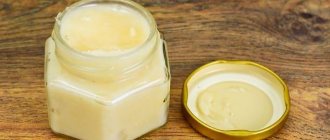Author of the article:
Soldatova Lyudmila Nikolaevna
Candidate of Medical Sciences, Professor of the Department of Clinical Dentistry of the St. Petersburg Medical and Social Institute, Chief Physician of the Alfa-Dent Dental Clinic, St. Petersburg
The taste of blood in the mouth is quite common. However, this symptom should never be ignored. Of course, the reasons for its appearance can be quite harmless, for example, a slight injury to the gums or eating food from clay dishes. However, an unpleasant taste can also indicate very dangerous pathologies. Let's figure out why a metallic taste may appear in the mouth and what to do to eliminate it as soon as possible, and most importantly, remove the reasons for its appearance.
Conventionally, all the causes of a pronounced metallic taste can be divided into three groups:
- Dental problems are usually associated with increased bleeding of the gums.
- Oral injuries.
- Internal pathologies.
Taking various medications often leads to a taste of blood in the mouth.
general characteristics
A pathological disorder of taste perception is called dysgeusia.
Such a “perversion” of taste sensations can be a sign of the development of neurological, hormonal, mental disorders and other diseases, including those caused by a deficiency of certain substances in the body. If the taste of the products remains unchanged, this diagnosis can be excluded.
In this case, we are talking about the temporary persistence of an unusual taste in the mouth, and most often the problem disappears when the cause of its appearance is eliminated.
Why does it occur in pregnant women?
Women experience unpleasant sensations during pregnancy. The symptom is more often observed in the early stages of pregnancy and is associated with a lack of hemoglobin in the body.
To combat the problem, women are prescribed vitamin complexes and diet adjustments.
There are a number of other factors that predispose to the problem:
- hormonal imbalance;
- change in taste preferences;
- increased sensitivity of the olfactory organs;
A woman will be able to finally get rid of unpleasant symptoms after childbirth . Mint candies will help temporarily eliminate discomfort.
Causes of taste in mouth
Throat diseases may be accompanied by an unpleasant taste in the mouth.
Photo: imagepointfr / Depositphotos Reasons for an unusual taste in the mouth may include:
- diseases of the teeth, gums and oral mucosa;
- pathologies of the ENT organs (nasopharynx, paranasal sinuses);
- unbalanced diet;
- diseases of the stomach and gall bladder;
- hormonal and neurological disorders;
- intoxication with chemicals.
In women, a change in taste can be a sign of pregnancy; in men, it is rarely associated with physiological conditions and hormonal surges. At the same time, diseases of the nervous, respiratory systems, or even cancer can lead to the development of symptoms. Doctors will help you understand the cause of the symptom: in this case, an integrated approach to examination and treatment is necessary.
Causes of blood taste in mouth
The characteristic taste of blood most often indicates increased bleeding of the gums. Also, such a taste can be a symptom of diseases of the nasopharynx and paranasal sinuses (sinusitis, frontal sinusitis, sinusitis).
Other reasons for feeling blood in the mouth:
- diseases of the bronchi and lungs (acute bronchitis, pneumonia, pleurisy, lung abscess);
- disorders of the hematopoietic system;
- diabetes;
- renal failure;
- oncological diseases;
- internal bleeding.
In addition, the sensation of blood in the mouth may be associated with diseases of the gastrointestinal tract (GIT):
- esophagitis;
- gastroesophageal reflux disease (GERD);
- chronic gastritis;
- liver pathologies.
The taste of blood may occur due to biting the mucous membranes of the cheeks or tongue. In this case, it is enough to actively rinse your mouth with antiseptic solutions, for example, chlorhexidine, throughout the day.
Causes of bitter taste in mouth
An unpleasant bitter taste may appear in the morning after waking up or several hours after eating.
Common causes of a bitter taste in the mouth:
- Pathologies of the liver and gallbladder (hepatitis, cirrhosis, cholecystitis, cholelithiasis, gallbladder kinks), stagnation of bile - at a certain point, its excess leaves through the bile ducts, enters the stomach and penetrates the esophagus.
- Indigestion. Slowing intestinal motility leads to retention of undigested food in the gastrointestinal tract. This leads to fermentation processes and the appearance of a characteristic taste in the mouth.
- Neurological pathologies (Alzheimer's disease, consequences of traumatic brain injury).
- Pregnancy.
Symptoms can also be caused by hormonal disorders, parasitic infections, or taking certain medications (antibiotics, antiallergic drugs, chemotherapy drugs).
At home you can get rid of the symptom with:
- eating small meals frequently;
- compliance with the water regime;
- rinse your mouth with a spoon of baking soda.
However, after eating, the sensations usually disappear for some time.
Causes of a metallic taste in the mouth
This symptom is often confused with the taste of blood, but other conditions can cause a strong sensation of “metal” in the mouth:
- chemical poisoning with heavy metals (mercury, copper, lead, arsenic);
- taking certain medications (iron supplements for anemia, antiparasitic drugs, pills to lower blood pressure);
- galvanosis - disruption of electrochemical processes in the oral cavity due to metal prostheses, implants, piercings;
- “burning mouth syndrome”, insufficient salivation and dry mouth;
- impaired kidney function (excessive accumulation of metabolic products);
- endocrine diseases (diabetes mellitus, Fig. 1);
- period of hormonal changes (pregnancy, menopause).
The symptom can also appear due to everyday reasons:
- insufficient purification of drinking water;
- storing food in aluminum containers.
To relieve the metallic taste, you can try rinsing your mouth with salt and water, eating foods with intense flavors, and adding more natural spices. It is also important to temporarily switch to cutlery made from non-metallic materials.
Figure 1: A metallic taste in the mouth may indicate a serious medical condition. Source: Verywell Health
Causes of sweet taste in mouth
A sweetish taste that is not associated with an excess of desserts in the diet may be a sign of:
- dental pathologies;
- diabetes mellitus;
- pregnancy;
- problems with the thyroid gland;
- neurological pathologies (stroke, epilepsy);
- GERD (gastroesophageal reflux disease);
- bacterial infections - some microorganisms (streptococci, staphylococci) produce enzymes with a specific taste;
- pesticide poisoning.
You can try to get rid of this feeling by giving up sweets. Also, in the fight against taste, it is necessary to avoid smoking, drink enough fluids throughout the day and carefully observe the rules of oral hygiene.
Causes of acetone taste in the mouth
The reason for this taste and smell of “nail polish remover” from the mouth is most often the excessive content of special substances of fat metabolism - ketone bodies.
As a rule, the symptom appears with diabetes mellitus, but can also accompany other conditions:
- following a keto diet (Fig. 2);
- fasting or drinking too much fluid;
- kidney damage (glomerulonephritis, renal failure);
- excessive alcohol consumption;
- liver pathologies.
Figure 2: Following a keto diet may cause your breath to smell like acetone.
Source: Sewcream / Depositphotos You can get rid of the characteristic smell of acetone using natural breath fresheners, using dental floss and drinking water with lemon.
Important! If you experience a taste of acetone in your mouth, you should reconsider your diet and abandon alternative foods that do not contain sugar - a carbohydrate-free diet often leads to ketoacidosis.
Why does it occur in the morning?
Unpleasant sensations that occur only in the morning indicate the presence of chronic pathologies in the body.
- Diseases of the ENT organs . Infection of the nasopharynx leads to the fact that the mucous membranes in this area become thinner and become covered with erosions. After a night's sleep, a large amount of mucus forms in the nasopharynx, which, when dried, injures the tissues of the throat and nose.
- Bronchial asthma . When the disease occurs, the oral mucosa dries out and the function of taste buds is impaired.
- Exacerbation of diseases of the gastrointestinal tract - stomach ulcer, gastritis, inflammation of the pancreas, cholecystitis.
- Heart dysfunction . The pathology occurs against a background of chest pain, shortness of breath and cough in the morning.
Help before diagnosis
In most cases, the following help to get rid of the symptom:
- keeping the oral cavity clean;
- regular and balanced nutrition;
- cessation of smoking, alcohol abuse;
- drink enough fluid during the day;
- moderate activity after meals.
You can temporarily remove the taste by thoroughly brushing your teeth, rinsing your mouth with water and lemon juice or baking soda, chewing gum, or special mouth fresheners.
What to do to get rid of the smell
Some patients, even having discovered that the cause of such bad breath was a tooth rotting under the crown, for some time they hope to cope with the problem on their own: they rinse their mouth with decoctions of chamomile, calendula, and sage.
Antibacterial rinses and traditional medicine give a temporary effect and are not able to eliminate the root cause of the problem. In addition, frequent rinsing can disrupt the normal microflora of the oral cavity, when beneficial microorganisms die along with harmful ones.
It should be understood that no home remedies will stop the inflammatory process in the tooth, which will only progress and lead to its complete destruction and loss.
When to see a doctor?
Eliminating the cause of the development of a symptom most often completely eliminates all its manifestations, so it is important to consult a doctor in a timely manner (Table 1).
Table 1. Taste in the mouth: when should you seek medical help?
| Type of taste in the mouth | Reasons to see a doctor |
| Taste Blood | If the symptom is not associated with accidental damage to the oral mucosa, you should begin the examination with a trip to the dentist. If necessary, the specialist will refer you to other doctors for consultation. |
| Metallic taste | You need to undergo examination in the toxicology department if the taste appears after poisoning with chemical agents. It is also important to consult a doctor if you suspect bleeding of unknown location or galvanism. |
| Bitter taste | If bitterness in the mouth persists for several days, and is also accompanied by the appearance of plaque, nausea or vomiting, you should make an appointment with a gastroenterologist. This is probably how the body “signals” about disturbances in the gastrointestinal tract. |
| Bitter taste | If your taste changes regularly without connection with the amount of sweets in your diet, you should consult a therapist or endocrinologist. |
| Taste of acetone | You should definitely see an endocrinologist if the symptom occurs due to diabetes. When following a low-carbohydrate diet, it is also important to choose a new diet from a nutritionist. |
Clinical researches
The effectiveness of various ASEPTA mouth rinses has been repeatedly proven clinically.
For example, it has been clinically proven that the two-component mouth rinse ASEPTA ACTIVE more effectively combats the causes of inflammation and bleeding compared to single-component rinses - it reduces inflammation by 41% and reduces bleeding gums by 43%.
Sources:
- The role of anti-inflammatory rinse in the treatment of periodontal diseases (L.Yu. Orekhova, A.A. Leontyev, S.B. Ulitovsky) L.Yu. OREKHOVA, Doctor of Medical Sciences, Prof., Head of Department; A.A. LEONTIEV, dentist; S.B. ULITOVSKY, Doctor of Medical Sciences, Prof. Department of Therapeutic Dentistry of St. Petersburg State Medical University named after. acad. I. P. Pavlova
- The effectiveness of the use of Asept “adhesive balm” and Asept “gel with propolis” in the treatment of chronic generalized periodontitis and gingivitis in the acute stage (Municipal Dental Clinic No. 4, Bryansk, Kaminskaya T. M. Head of the therapeutic department Kaminskaya Tatyana Mikhailovna MUZ City Dental Clinic No. 4, Bryansk
- The effectiveness of complex therapy in the treatment of periodontal diseases. (Department of Periodontology of the SF State Budgetary Educational Institution of Higher Professional Education MGMSUIM.A.I. Evdokimova. Moscow.) Nemeryuk D.A. - Associate Professor, Candidate of Medical Sciences, Dikinova B.S. - Postgraduate Student of the Department of Periodontology of the SF Tsargasova M.O. - Postgraduate Student of the Department periodontology SF Yashkova V.V. - postgraduate student of the Department of Periodontology of the SF Department of Periodontology of the SF State Budgetary Educational Institution of Higher Professional Education MGMSUIM.A.I.Evdokimova. Moscow
Diagnostics
The first step in finding the cause of an unpleasant taste in the mouth should be a trip to the dentist: he will immediately determine the possible connection of the symptom with diseases of the teeth and surrounding tissues.
If the problem does not go away, you should consult a therapist: a specialist will help you understand the likely causes of the symptom. For an accurate diagnosis, the results of the following studies may be needed:
- clinical and biochemical blood tests (liver, kidney tests, glucose levels, lipid profile);
- tests to evaluate thyroid function;
- Ultrasound of the abdominal organs;
- fibrogastroduodenoscopy (FGDS);
- pH-metry of the stomach;
- tests for Helicobacter pylori infection;
- electroencephalography (EEG), magnetic resonance imaging (MRI) of the head.
The choice of diagnostic algorithm depends on the most likely cause of the development of an unpleasant taste in the mouth.
What to do if the tooth under the crown has completely rotted
One type of reconstruction of a severely damaged tooth is a stump inlay. It is a product that replicates the root system of the tooth. A crown is placed on the upper part of the structure protruding above the gum. The method is used only if there are healthy, undamaged roots.
Stump inlays are made of chrome-plated cobalt or alloys with precious metals (gold, silver). Preference is given to gold, as its shade resembles the color of natural enamel. The silver tab, despite its antibacterial effect, is used less frequently, since it shows through the crown as a dark spot.
If the roots are completely rotten and cannot be restored, the tooth is removed.
The choice of one or another method of dentition restoration in case of tooth loss remains with the patient, and his wishes regarding the material, type of structure, as well as financial capabilities are taken into account.
Treatment
The best and most effective method of treating a symptom is to eliminate the cause of its occurrence. If the bad taste in your mouth is caused by a dental problem, it is important to get rid of tooth decay or other diseases as soon as possible.
If an unpleasant taste occurs due to pathology of certain organs and metabolic disorders, the doctor prescribes treatment for the underlying disease.
Conservative therapy
Depending on the characteristics of the symptom, to eliminate it, the doctor may prescribe drugs from the following groups:
- antiseptics;
- antacids;
- choleretic drugs;
- hypoglycemic agents;
- antidotes and detoxification drugs.
The doctor selects treatment individually. The treatment regimen depends on the causes of the taste, its severity, concomitant diseases and other features of the clinical case.
Sometimes, to get rid of the taste in the mouth, you have to resort to medications. Photo by JESHOOTS.com: Pexels
Physiotherapy
Methods of physiotherapeutic treatment in cases of unpleasant taste in the mouth help to cope with chronic inflammatory and metabolic processes, and eliminate other symptoms of pathology.
For example, for diseases of the ENT organs, rinsing with sea salt solutions, ultrasound treatment and UV irradiation, and therapeutic inhalations are used.
Warming procedures are contraindicated for patients with acute conditions - inflammation, likelihood of bleeding, severe pain.
Dental diseases
The most common cause of the taste of blood in the mouth remains dental diseases and lip lesions. Diseases are easily recognized by reddish-colored saliva, inflamed oral mucosa, and the presence of ulcers and erosions.
The main dental problems that cause the taste of blood in the mouth are:
- gingivitis - inflammation of the gums;
- stomatitis - damage to the mucous membranes;
- cheilitis - lip injuries;
- periodontitis is inflammation of the periodontal tissues.
What drugs cause a metallic taste?
Photo: https://pixabay.com/photos/health-cure-vitamins-tablets-621356/
Some medications can cause a metallic taste in the mouth:
- antibiotics;
- anti-inflammatory drugs;
- hormonal contraceptives;
- antihistamines;
- “weight loss” products;
- inhibitors;
- glucocorticosteroids;
- medications that normalize acidity;
- tablets that lower glucose levels;
- drugs prescribed for high blood pressure;
- drugs that reduce cholesterol levels.
General recommendations and preventive measures
The appearance of a persistent cough with a taste of blood is a reason to consult a doctor! The sooner a diagnosis is made and treatment is prescribed, the greater the chance of maintaining health. To avoid the development of the above diseases you need to:
- completely stop smoking;
- promptly identify and treat infectious diseases;
- increase the activity of the immune system;
- avoid frequent stressful situations;
- prevent exacerbation of chronic diseases;
- follow the principles of healthy eating;
- regularly expose the body to moderate physical activity.
By adhering to general recommendations and observing preventive measures, you can avoid many health problems. It is easier to prevent any disease than to spend a lot of time and money on its treatment!
Sources:
- https://healthperfect.ru/privkus-krovi-vo-rtu-prichiny.html
- https://health-post.ru/privkus-krovi-vo-rtu-01/
- https://kcdc.ru/desny/vkus-krovi-vo-rtu-prichiny.html
- https://mag.103.ua/simptomy/13633-privkus-krovi-vo-rtu-prichiny/
- https://krasnayakrov.ru/organizm-cheloveka/privkus-krovi-vo-rtu-stoit.html
- https://StomaGet.ru/bolezni/polosti-rta/privkus-krovi-vo-rtu
- https://izzhoga.info/privkus-krovi-vo-rtu/
- https://www.vash-dentist.ru/lechenie/desnyi/gingivit/prichinyi-poyavleniya-privkusa-krovi-vo-rtu.html
- https://sosudoved.ru/krov/privkus-krovi-vo-rtu-po-utram-posle-sna-priciny-i-varianty-lecenia.html
- https://www.KrasotaiMedicina.ru/symptom/taste/blood
Associated symptoms
If an unpleasant taste of sweetness occurs in the mouth, people may experience other symptoms that may indicate a particular disease:
- There is a feeling of intense thirst.
- There is heaviness and discomfort in the stomach.
- Shortness of breath appears.
- Skin itching occurs.
- Burning and heartburn begins in the chest area.
- Nausea appears, which may be followed by vomiting.
- Pain sensations of varying intensity develop, the localization of which can be in any zone.
- Headaches occur.
- The urge to urinate becomes more frequent.
- You may feel dizzy.
- Sweating increases.
- Pressure or temperature rises.
- Body weight decreases or, on the contrary, increases.
- Weakness appears.
- Numbness or tingling occurs in the lower and upper extremities.
- Fatigue increases.
If a person experiences such symptoms, it means that pathological processes are developing in his body. They cannot be ignored, otherwise you will have to face unpleasant consequences.
Rules for caring for fixed dentures
High-quality care of crowns in compliance with all hygienic rules can significantly extend the service life of the product.
Since a regular toothbrush is not able to fully clean all hard-to-reach places, additional care products are used to better treat teeth and dentures.
Dental floss (floss). This is a special thread made of nylon, silk, acetate fibers with a flat or round cross-section, designed to clean interdental spaces. To enhance the effect, they are often impregnated with antiseptics.
Floss - disposable toothpicks with a thread on a frame are used for the same purposes as floss.
Bundle brush . The interdental spaces are cleaned using a brush-brush with many long bristles. Dentists recommend alternating cleaning the spaces between teeth with brushes and dental floss, since some of them (floss) are better suited for narrow gaps, and a tuft brush does an excellent job of cleaning wide gaps.
An interproximal brush with a brush is designed to treat hard-to-reach areas between the crown and adjacent teeth.
An irrigator is a device for cleaning the oral cavity using a water jet supplied under pressure. A pulsating stream of water penetrates into the most inaccessible places, cleanses the surface of teeth and artificial dentures from plaque and food debris in the gum pockets and interdental spaces.
Dentists do not recommend using wooden toothpicks at all. Wood particles get stuck between the teeth, begin to rot and cause inflammation. In addition, toothpicks can easily injure your gums without even noticing it.
What to do if a crown falls off
The reasons why a crown falls off a tooth can be very diverse:
- With prolonged use, the cement on which the crown was strengthened dissolves.
- Secondary caries, leading to the destruction of the tooth stump and a violation of the tightness of the connection between the tooth and the crown.
- Damage to the denture due to heavy load when chewing solid food.
You cannot try to put the crown in its original place on your own and continue to use the prosthesis. This is very dangerous, since the crown, unexpectedly jumping off the tooth, can enter the windpipe and cause suffocation.
It is impossible to properly strengthen the prosthesis at home; only a dentist can do this.
The dentist, after examination and diagnosis, will decide what to do next.
There are several options:
- If the crown is only slightly damaged, it can be repaired and replaced.
- In case of significant damage or if the service life of the orthopedic structure has come to an end, the prosthesis must be replaced.
- If the cause of crown loss is caries, the tooth is treated, and then a decision is made about the possibility of prosthetics.
- If a tooth is severely damaged and cannot be restored, it is removed, and then implantation or a bridge is installed.











